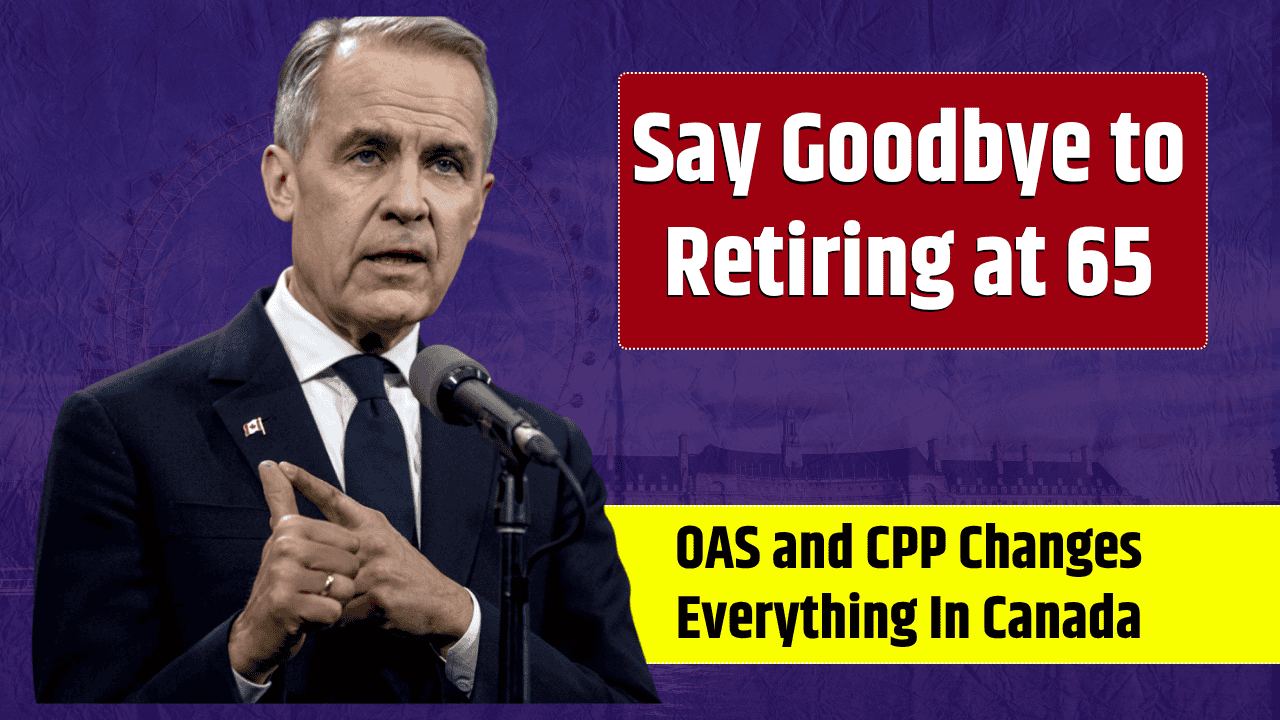For generations, turning 65 meant one thing for Canadians: retirement. It marked the milestone where most began collecting Old Age Security (OAS) and Canada Pension Plan (CPP) benefits. But as lifespans grow longer and work lives extend, that fixed retirement target is beginning to shift. If you’re still planning to stop working at 65, you may want to rethink your approach. Retirement today is more flexible, personal, and complex than ever before.
Table of Contents
Why Retiring at 65 Is Becoming Less Common
The concept of retiring at 65 is fading due to several major trends. First, life expectancy in Canada continues to rise. The average Canadian can now expect to live into their mid-80s or beyond. That means retirement could last 20 to 30 years—or even longer—which puts more pressure on personal savings and public pensions.
Second, the cost of living has surged. Housing, healthcare, and everyday expenses are consuming a larger share of income, making it harder for retirees to make ends meet without supplemental income or extended work years.
Third, the structure of government pensions is evolving. While CPP and OAS remain available starting at 65, the government has introduced incentives to delay claiming benefits, boosting payouts for those who wait.
CPP and OAS: Claiming Early vs. Delaying
You can begin collecting CPP as early as age 60, but there’s a cost. Your monthly benefit is reduced by 0.6% for each month before age 65, which equals a 36% reduction if you start at 60. On the flip side, if you delay until 70, your payment increases by 0.7% per month—or a 42% boost over the standard benefit at 65.
Read Also- $3800 Pension Boost For Retirees In Canada: CPP – OAS Direct Pension Date
OAS also allows for deferral. While it begins at 65, waiting until 70 can increase your monthly payments by up to 36%. This was designed to reflect modern work and retirement trends, where individuals might work longer or phase into retirement gradually.
| Benefit Type | Earliest Start Age | Standard Age | Latest Start Age | Max Increase (if delayed to 70) |
|---|---|---|---|---|
| CPP | 60 | 65 | 70 | +42% |
| OAS | 65 | 65 | 70 | +36% |
Is the Retirement Age Going Up?
Canada briefly considered raising the OAS eligibility age to 67 back in 2016 but reversed the decision. Still, the pressure hasn’t gone away. As populations age and the ratio of workers to retirees shrinks, governments may be forced to reconsider.
Read Also- Next Social Security payment arrives on Wednesday, July 9, 2025: Which retirees are eligible?
Countries like the U.S., U.K., and Australia have already begun phasing in higher retirement ages, and it’s possible that Canada could follow suit if fiscal and demographic pressures continue to mount.
More Seniors Are Staying in the Workforce
According to Statistics Canada, the number of Canadians aged 65 and older who are still working has doubled over the past two decades—from 10% in 2000 to about 20% today. While finances play a role, many older adults also choose to work for a sense of purpose, structure, and social connection.
This shift reflects a broader trend: retirement is becoming a process rather than a single event. People are more likely to transition gradually into retirement, working part-time, consulting, or volunteering.
Planning for a Flexible Retirement
There’s no longer a one-size-fits-all retirement age. Whether you plan to retire at 60, 65, or 70+, your strategy should be based on your financial situation, health, goals, and lifestyle.
Here are a few key considerations:
- Know your numbers: Calculate expected CPP and OAS payments, personal savings, and other income sources.
- Understand your expenses: Account for healthcare, housing, travel, and inflation over a 20- to 30-year horizon.
- Plan for flexibility: Be ready to adjust your timeline or budget depending on market conditions or health changes.
- Get professional help: Consider working with a financial planner to ensure your plan is both realistic and resilient.
Retirement isn’t just about reaching a certain age—it’s about reaching a stage of financial independence that supports your lifestyle. With people living longer and retiring differently, it’s more important than ever to be proactive and adaptable in your planning.
FAQs
Can I still retire at 65 in Canada?
Yes, you can. But whether it’s financially sustainable depends on your personal savings, CPP/OAS timing, and overall cost of living.
Is Canada increasing the retirement age?
Not yet. Although a proposal to raise the OAS age to 67 was scrapped in 2016, ongoing economic and demographic challenges may bring the issue back into focus.
Should I delay CPP or OAS to get higher benefits?
It depends on your health, life expectancy, and financial needs. Delaying increases the benefit, but you’ll receive it for fewer years.
Can I work while collecting CPP or OAS?
Yes. However, if your income exceeds certain thresholds, OAS may be clawed back through taxes.
What age should I aim to retire?
There’s no universal answer. Your target should align with your health, savings, and lifestyle goals.





















